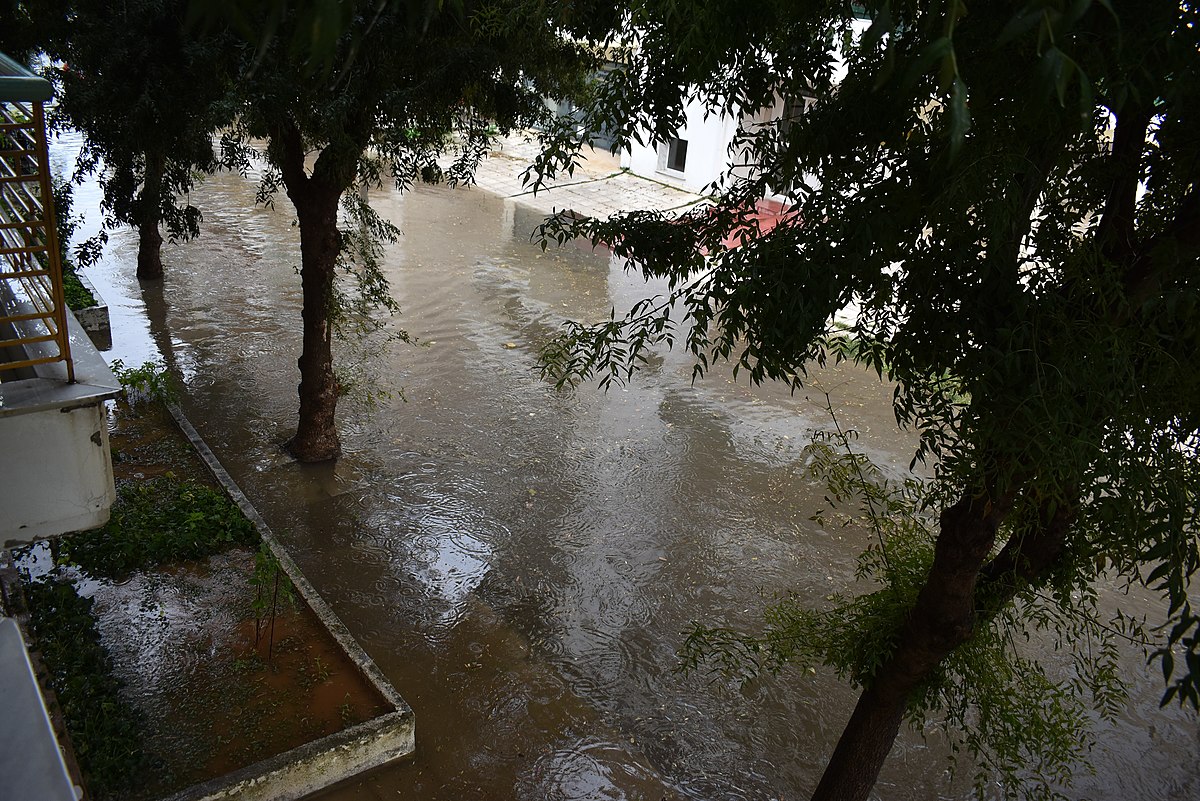Storm Daniel hit Greece on Tuesday and continued for three days, after the hottest summer ever recorded.
The bodies of an 88-year-old woman, a 65-year-old man, and a 58-year-old man, were found near the city of Karditsa. The body of a 42-year-old man was later found in the area of Volos.
Authorities say two more people are still missing.
The storm has destroyed homes, buildings, bridges, and roads; killed animals; and destroyed crops in the fertile Thelassy plain.
Over 4,250 people have been evacuated so far, according to authorities, with efforts focused on villages near the River Pineios and around the city of Larissa.
Greek Prime Minister and conservative leader Kyriakos Mitsotakis visited the operational centre in Thessaly on Sunday, and announced that financial relief would be given to those affected by the storm.
Mitsotakis said the state’s priority is to “cure the serious wounds this calamity has left.”
Mitsotakis plans to meet EU Commission President Ursula von der Leyen in Strasbourg on Tuesday.
Amid the crisis and the rising death toll, Mitsotakis assured that his annual speech on economic policy was going ahead and would be postponed until the 16th of September and said that Greece’s economy would recover from the disaster.
This natural disaster has just followed wildfires that have torn across the country over the past few months.
Scientists say that, due to Greece’s Mediterranean climate, the country is especially susceptible to the impacts of climate change.
Severe weather has also hit other parts of the world in recent weeks, including floods in Scandinavia, southeast Europe, and Hong Kong, as well as record dry weather in India.






